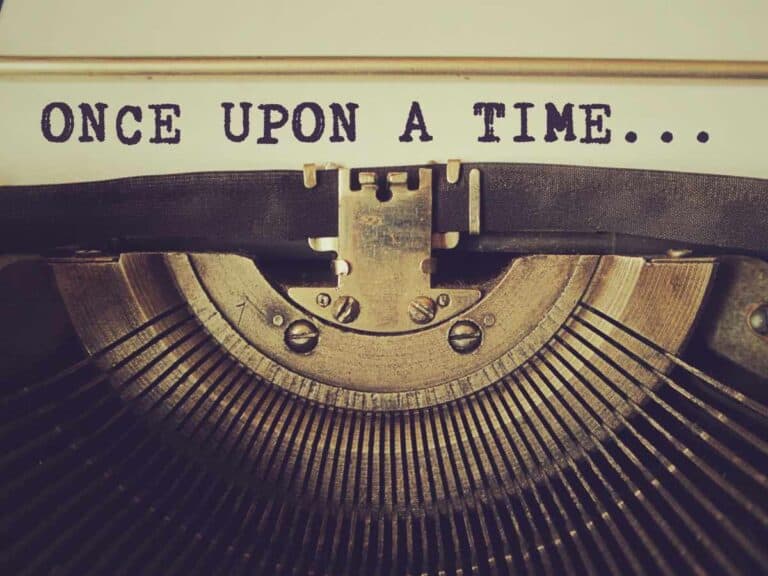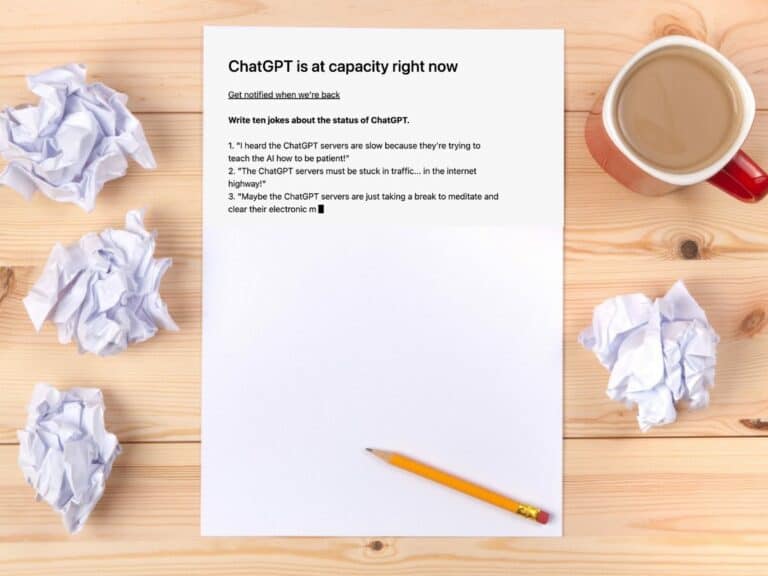How to Close a College Essay (With 10 Examples)
Writing a conclusion can be quite difficult because, often, it can be challenging to look for something useful or interesting to say at the end of the piece.
And even though there are easy formulas for writing conclusions, which, the school adds, can be tempting to use, it’s usually best to refrain from relying on them as they do not allow you to end your composition with a bang.
As someone who is about to write a college essay, it’s definitely a good idea to steer clear of any of those!
What you will submit together with your college application can spell the difference between going to your top-choice school and attending a second- or third-choice school.
Needless to say, it’s just as vital to carefully think about how you will jump-start your college essay as how you will wrap it up with a strong and winning conclusion.
Terrified that the conclusion you have in mind might bring your entire college application essay down and flush any admission chances to your dream school down the drain?
Below, I will give you some strategies on how to close your written submission successfully.
But first, let’s talk about this very important matter every college-bound teen, especially one whose goal is to get admitted to a selective institution of higher education, needs to know before writing a college essay…

Three Worst Options to Close a College Essay
There are numerous ways to wrap up a college essay in a way that could make those hard-to-please admissions officers reckon that you would make for a wonderful addition to the campus.
But then on the other hand, there are also things you may mistakenly commit that can weaken your application and even cause a rejection letter to be sent your way.
Needless to say, you should avoid them at all costs if getting denied is not an option!
A terrible concluding paragraph can wreak havoc on your essay no matter how flawlessly and impressively written the introduction and main body are — a single problematic part is all it takes to ruin everything.
Therefore, other than having a clear idea of how any college application essay is best closed in exchange for good news when college admissions decision time comes, it’s also a must for you to be acquainted with conclusions that are absolute no-nos.
And, of course, other than being familiar with them, you should make sure that none of them will mar your college essay.
Here are some endings to dodge whatever happens:
1. Giving a summary
When it comes to writing either an academic essay or a research paper, there’s a rule that everyone should abide by without any hesitation or doubt: the conclusion should briefly talk about the key points or arguments.
So, in other words, the written piece should end with a summarization, which is why it’s referred to as a concluding summary.
The addition of any new information or idea is considered unthinkable, although a synthesis of some of the most important matters included in the composition is welcome and, in most instances, expected.
However, it’s a completely different story if what’s being written is a college essay.
If the goal is to make sure that your college essay won’t take away from the strength of your application, refrain from restating just about everything you talked about briefly in the concluding paragraph.
Not only is it redundant and, therefore, completely unnecessary but also makes it appear as though you ran out of ideas before bringing the piece to a full stop.
A college application essay can be as short as 250 words to as long as 600 words — ending yours with a brief summary might look like you just want to meet the word count requirement, which is not the only thing that admissions officers want.
And speaking of whom, giving a summary at the end of your college essay could come across as you saying:
The admissions committee member who will read my essay might fail to completely get the point of my composition because of its complexity and innovativeness, so I should summarize it to make sure that he or she will understand everything.
Or:
Again, here’s what I’ve been trying to tell you all this time, which means that I am totally banking on my ability to correctly solve practically any mathematical problem there is to have a successful career as an aerospace engineer one day.
2. Using cliché transitions
First things first: no cliché should make it to your college essay or any other written piece you will write from hereon. The use of a cliché immediately extends the fact that you lack originality and, worse, sincerity as a writer.
Definitely, you don’t want your college essay to be interchangeable with someone else’s.
And that is why ending yours with something that starts with a trite transition, most especially as a way to restate everything you have talked about, is prohibited.
College admissions officers have laid their eyes on some of the most original personal compositions of junior and senior high schoolers, and it’s effortless for them to catch clichés.
In conclusion or in essence — needless to say, using such a hackneyed phrase is a disaster as it’s both resorting to the use of a cliché as well as committing one of the mortal sins of concluding a college essay, which is summarizing.
The following are some examples of cliché transitions that lead to a summary to steer clear of:
- All in all
- All things considered
- As has been demonstrated
- In a nutshell
- In brief
- In closing
- In passing
- In short
- In summation
- Lastly
- On a final note
- Overall
- Simply put
- To conclude
- To make a long story short/long story short
- To put it briefly
- To review
- To sum up
- To wrap things up
- Ultimately
- When all is said and done
It’s important to note that a good essay, including a college essay, uses transitions between paragraphs to maintain a logical and smooth flow of the written piece.
Without them, your submission may make it hard for the reader to get from one point to the other.
It’s not that college admissions officers are dense — it’s just that your college essay’s paragraphs are disjointed.
Found yourself in a rut and feel that starting your conclusion with a cliché transition is the way to go?
Proceed with drafting the concluding paragraph. Once you’re through, scrap the trite word or phrase you opened your conclusion with as well as the rest of the sentence and see how that works.
3. Stating hopes of acceptance
It’s no secret that you submitted a college application essay because it’s one of the various admissions requirements. And it’s no secret, too, that you completed all admissions requirements because you wanted to get accepted.
Therefore, expressing your hopes of receiving an offer to enroll is stating the obvious.
As mentioned earlier, high school teens gearing up for their postsecondary education careers are usually limited to 250 to 600 words when writing a college essay.
Needless to say, ending your composition with an entire paragraph devoted to how much you want to attend the institution is a complete waste of precious space.
Because you can submit a college essay containing only as many words, it’s of utmost importance to make the most out of the opportunity to be able to flex your thoughts, creativity, originality and superb writing skills.
There is no point squandering the word limit by your college essay’s conclusion coming across as saying:
I would really appreciate it if you could add my college application to the pile of accepted applications because I have been dreaming of earning an undergraduate degree from University X since time immemorial.
There’s nothing wrong with associating the college career you have envisioned for yourself with what you talked about in your college essay. However, there is no need to explicitly mention it or, worse, beg to be admitted to the institution.
But it’s not just the obvious fact that you want to get accepted that you should avoid mentioning.
Instead of ending with a high note, your college application might exit with a whimper if, for example, you highlighted a number of your personal skills and strengths and unique experiences and then concluding everything with something like:
Clearly, I am a hardworking individual.
Or:
It’s apparent that I would make for a great engineer because of my math skills.

5 Winning Ways to Wrap Up a College Essay
There are many different ways to ruin a perfectly remarkable college application essay with a mediocre or appalling conclusion.
It’s a good thing that there are also numerous ways to turn your written composition from one good essay into a one-of-a-kind essay with the right concluding paragraph — all you have to do is choose from some recommended ones.
You are not going to have a shortage of options when it comes to closing a college essay the right way.
Because some are simply better than the rest, which, it goes without saying, could help you ace the admissions review process, it’s important that you decide on something that suits your writing style and personality, too.
See which of these strategies in ending a college essay can give you that a-ha moment:
1. Going back to where you began
Some people call it full circling. Others refer to it as bookending.
No matter the name, one thing remains true: this particular style of closing a college application essay involves seamlessly tying the conclusion to the introduction by reintroducing a word, phrase, individual or the point of the opening paragraph.
What’s really nice about opting for this approach is that it allows you to hem your composition.
Of course, to be effective, the main body of your college essay should veer away from the introduction, to the point of making sure that the readers almost forget what you just talked about at the onset, only to suddenly remind it of them in the end.
When executed correctly, this style can give your written submission a satisfying and self-contained appeal to it.
Suppose that you opened your college essay talking about how a large rock fell on and fractured your leg in 3rd grade. A great ending to it using this particular approach would look something like this:
A rock may once have crushed my legs, causing me to spend a fraction of my childhood donning a leg cast, but, in high school, I established a rock band — and we crushed every gig on and off campus!
2. Peeking into the future
Any essay ending on a positive or hopeful note can always put a smile on the reader’s face.
Needless to say, a concluding paragraph that talks about a bright future ahead allows you to highlight your academic and career goals, giving the audience a much better idea of what sort of college student and professional you could be.
While you should refrain from ending your college application essay by talking about how much it would mean the world to you to get accepted to your dream school, you can make college admissions officers realize you’d make for a wonderful addition to the campus without blatantly doing so by mentioning your hopes and dreams.
Just take a look at this conclusion to an essay of a student applying to a college specializing in engineering:
I can’t wait to see the very first rocket ship I helped design blast off from earth, exposing the crew to the lowest G forces possible for I, as a terrible roller coaster rider, cannot stand high accelerations on the body myself.
3. Ending things with an action
As far as concluding your college application essay with an action goes, the sweeter and shorter, as a general rule of thumb, the better. But it’s also important to wrap things up at the critical moment: right after your piece’s high point.
Making admissions officers wish it hadn’t ended so soon is the main goal.
With them wanting more, they won’t be able to stop thinking about you.
And if you’re still in their mind long after they have taken a look at your application and the rest of the supporting documents, it’s not unlikely for them to want to see you on the campus instead of allow another institution to welcome you.
Here’s an example of ending your college essay with an action that can cause the reader to want more:
After taking a deep breath, I approached the lectern to the thundering applause of the audience.
4. Leaving with a dialogue
Talking about things you have personally experienced and lessons you have arduously learned in your college application essay is always nice.
After all, your piece is something that gives admissions officers a different perspective of you, as a teener who is preparing to work on an undergraduate degree, beyond your GPA, standardized test scores and extracurricular activities.
Just like what was mentioned earlier, summarizing is off-limits when it comes to concluding a college essay.
But there’s a nifty way to reiterate the main point of your composition without simply giving a recap of everything you have cited from the very beginning. And it’s by ending your college application essay with a dialogue.
In most instances, the shorter and crisper the dialogue, the better the effect. It’s like abruptly ending your submission, too.
However, closing yours with words spoken to someone keeps the reader from having to do the guesswork since your point is implied, anyway, which is a textbook connect-the-dots scenario.
Planning on highlighting in your college application essay the fact that you developed a sense of social responsibility? Here’s how you can close it without merely giving a summary:
“I will talk to you later,” I said to my best friend on the phone. “I’m currently on my way to help feed the hungry.”
5. Revealing the central idea
It’s true that the introduction is meant to give the reader an idea of the topic of the essay as well as the various points that will be made about it.
But because a college application is no ordinary essay, there are instances when your composition can make a bigger impact if you save your main point until the very end.
Execute it correctly and you can keep admissions officers gluttonously devouring the intro and main body of your personal essay until they get to the concluding paragraph, which, hopefully, would end in you getting an acceptance letter.
Needless to say, you will have to hold back what you are trying to say long enough.
But the biggest challenge that comes with disclosing the central idea last is keeping the readers engaged and interested adequately for them to keep reading until they reach the end and learn what you have been trying to say all this time.
Failure to do so may leave admissions officers eagerly wanting to reach for another application essay that would make more sense.
Giving snapshots of how you shopped for your first bicycle with your dad in 2nd grade, how you first cannonballed in the water at Bandemer Park in Ann Arbor, Michigan and how you founded a running club in your high school could end in this:
By the time I earn a bachelor’s degree in sports science, hopefully, I have also run my very first Ironman Triathlon, which would serve as an homage to some of the most important and memorable moments of my life thus far.
Read Next: How to Start a Compelling Essay About Yourself
Disclaimer: The views and opinions expressed in this article are those of the authors and do not necessarily represent those of the College Reality Check.





